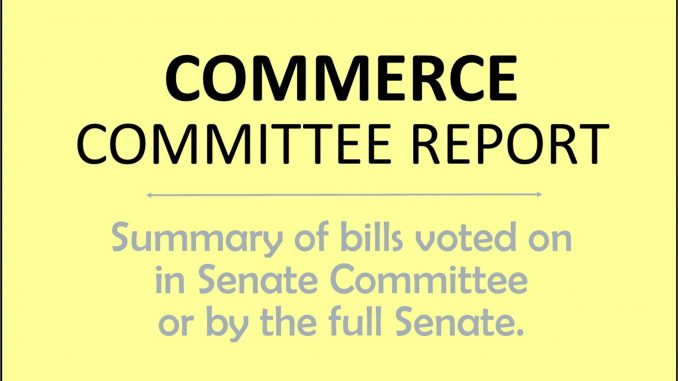
SF 337 – Child labor exceptions for volunteers
SF 505 – Professional landscape architects licensure
HF 264 – Domestic stock insurers
HF 327 – Franchisor-franchisee relationships
FLOOR ACTION:
SF 337 – Child labor exceptions for volunteers
SF 337 is an Iowa Economic Development proposal supported by the Iowa Commission on Volunteers Service, United Ways of Iowa and the YMCA State Alliance. It modifies current provisions of Code Chapter 92, which are Iowa child labor regulations regarding hours, permits, prohibited occupations and permitted occupations for those under 18. The proposal establishes three new exceptions from the law: a child who willfully volunteers, as defined by federal regulation, for a charitable or public purpose; a child 12 or older from being employed by a charitable organization or unit of state or local government as a referee for a sports program sponsored by that charitable organization or unit of government; and a child under 16 to serve in the Iowa Summer Youth Corps Program in Section 15H.5 or a child over 14 from serving in any other recognized program of Iowa National Service Corps Program, in accordance with Section 15H.9. These three new subsections must comply with prohibited hazardous occupations listed in Code section 92.8.
[3/26: 49-0 (Absent: Breitbach)]
SF 505 – Professional landscape architects licensure
SF 505 is a recommendation by the Banking Division’s Professional Licensure Bureau that updates provisions relating to the licensure of professional landscape architects by the Landscape Architectural Examining Board. It includes a change to the board membership requirements. The seven-member board includes two public members and five professional members who must be actively engaged in the practice or teaching of landscape architecture for at least five years preceding appointment. The bill allows one of those five members to be actively engaged in the practice or teaching of landscape architecture for at least one year preceding appointment. It also allows the board to adopt a national standardized test, and give reciprocity to individuals who have passed the same standardized test in other states.
[3/21: 46-0 (Absent: Bisignano, Celsi, R. Taylor; Vacant: Danielson)]
HF 264 – Domestic stock insurers
HF 264 (SF 330) allows Iowa domestic stock companies to divide into two or more insurers, and provides a process for regulatory approval for such actions. The insurer must file its plan with the Iowa Insurance Division and meet various requirements. The Division will determine whether to approve the plan. The proposal is modeled after Connecticut law, and does not apply to mutual insurance companies.
[3/25: 50-0]
HF 327 – Franchisor-franchisee relationships
HF 327 (SF 510) specifies that a franchisor is not defined as an “employer” as it relates to specified areas, exempting franchisors from liabilities under Iowa Code chapters applicable to workers’ compensation, wages, unemployment compensation and civil rights.
- Workers’ Compensation: A franchisor is not an employer for workers’ compensation purposes unless there is a written agreement or the workers’ compensation commissioner finds the franchisor exerts control over the franchisee that is not customary for the purpose of protecting the franchisor’s trademarks and brand.
- Wage Payment: A franchisor is not an employer for the purposes of wages unless there is a written agreement or the commissioner finds the franchisor exerts control over the franchisee that is not customary.
- Minimum Wage: A franchisor is not an employer for the purposes of wages unless there is a written agreement or the labor commissioner finds the franchisor exerts control over the franchisee that is not customary.
- Unemployment Compensation: A franchisor is not an employer for the purposes of wages unless there is a written agreement or the department finds the franchisor exerts control over the franchisee that is not customary.
- Civil Rights Commission: A franchisor is not an employer for the purposes of wages unless there is a written agreement or the commission finds the franchisor exerts control over the franchisee that is not customary.
The legislation applies to work performed on or after the effective date. The bill passed the House 51-45.
[3/25: 32-18, party line]
